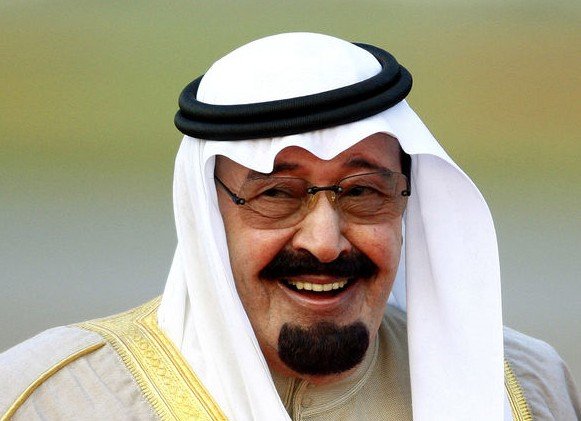Saudis’ Unprecedented Break with Washington over Egypt

By F. William Engdahl
One of the least commented aspects of ousting Egypt’s Morsi is the defiant act of the Saudi Royal House in backing the ouster of the Brotherhood and supporting the military restoration. The Saudi move is unprecedented in its open defiance of White House declared backing for the Muslim Brotherhood. The implications of the split are huge.
Twilight in the desert?
Since the time in 1945 on his return from the fateful Yalta Conference, that US President Roosevelt met Saudi King Ibn Saud and won exclusive rights for US Rockefeller-group oil companies to Saudi Arabia’s vast oil wealth, the relationship between Saudi and US foreign policy has been one of almost satrapy status for the Saudis.[1] Following the Kissinger-orchestrated 1973 “oil shock” in which OPEC raised its price by some 400%, Washington extracted a pledge from the Saudis that they would insure that OPEC sold its oil only in dollars, thereby ensuring the continued dominance of the US dollar as world reserve currency. In return, Washington agreed to sell US arms including training the Saudi Air Force.[2]
And in 2010 just as Washington launched its Arab Spring “democracy” offensive in Tunisia, Egypt and across the Islamic arc of crisis, the Obama Administration announced the largest arms deal in US history. The US agreed to sell the Saudis 84 F-15s new and upgrade another 70 as part of a €46 billion deal, the biggest arms deal in US history, as it prepared to isolate Iran. [3]
As we reported in an earlier article, before the Egyptian military coup, the Saudis had given secret assurance to Defense Minister and Chief of the Army, General Abdul Fattah al-Sisi, that the Saudis along with other conservative Gulf oil states including Kuwait and UAE would guarantee financial support should the Obama Administration cut the €1 billion annual aid to Egypt’s military in retaliation for ousting their man, Morsi.[4]
On July 17, the newly-sworn-in Egyptian transitional government confirmed that it has received €6 billion in grants, loans and fuel from Saudi Arabia and the UAE.
Saudi Arabia approved €4 billion in aid to Egypt and the UAE has offered €2 billion in desperately needed support for the economy. The Saudi funds comprise a €1.5 billion central bank deposit, €1.5 billion in energy products, and €750 million in cash, Saudi Finance Minister Ibrahim Al-Assaf said. The UAE will make a €750 million grant to Egypt and a €1.5 billion loan in the form of an interest-free deposit with Egypt’s central bank. [5]
The news is a double slap-in-the-face to Washington who had insisted that Morsi’s government buckle under to harsh IMF conditionalities as precondition for financial help.
Qatar reacts dramatically
Conspicuously, one Gulf energy-rich state absent from the aid is Qatar whose Emir Hamad bin Khalifa al-Thani had poured more than €6 billion in Egypt since the revolution two-and-a-half years ago and perhaps another €7 billion to bankroll Islamists in Libya, Syria and Gaza, the Palestinian enclave run by Hamas, an offshoot of the Muslim Brotherhood. Qatar is home to the US Central Command’s Forward Headquarters and the Combined Air Operations Center. And, most notably, until the Saudi and UAE-backed military coup against Brotherhood rule in Egypt on July 3, Qatar was home to leading members of the Muslim Brotherhood and one of its major financial backers in Syria, Egypt, Libya, and across the Islamic world. [6]
Within minutes of the Saudi and UAE backed Egypt coup, the Emir of Qatar took note of the implications and announced his abdication in favor of his son, Tamim. Hamad bin Jassem al-Thani, who had shaped Qatar’s pro-Muslim Brotherhood foreign policy, has been silenced, replaced by a military man who had been serving as deputy interior minister. The new Qatar leadership is now using words like “reassessment”, “recalibration” and “corrections” to discuss their foreign policy. In brief, they dare not risk total isolation within the Saudi-dominated Gulf Arab states.[7]
The Saudi decision to take bold action to stop what it saw as a disastrous US Islamic strategy of backing Brotherhood revolutions across the Islamic world has dealt a blow to the mad US strategy of believing it can use the Brotherhood as a political force to control the Islamic world more tightly and use it to destabilize China, Russia and the Islamic parts of Central Asia.
The Saudi monarchy began to fear that the secretive Brotherhood would one day rise against their rule as well. They never forgave George W. Bush and Washington for toppling the Baath Party secular dictatorship of Saddam Hussein in Iraq that brought a majority Shi’ite to power there, nor the US decision to topple close Saudi ally Mubarak in Egypt. America’s dutiful “vassal state” in the Middle East, Saudi Arabia, revolted on July 3 by backing and supporting the military coup in Egypt.
Aside from loudly protesting the Egyptian generals’ coup against their Brotherhood allies, Washington so far has been able to do little, an indication of the declining US global power. The Pentagon has sent two amphibious assault ships carrying 2,600 Marines to the southern Egyptian Red Sea coast. The huge USS Kearsarge with 1,800 Marines and the USS San Antonio with 800 Marines, “moved up into the Red Sea and parked off Egypt, because we don’t know what’s going to happen,” stated General James Amos, commandant of the Marine Corps.
Washington is suddenly in a major foreign policy disarray as the new Egyptian interim government is sworn in. To be continued…
Endnotes:
[1] F. William Engdahl, Gods of Money,2009, edition.engdahl, Wiesbaden, pp. 190-193.
[2] F. William Engdahl, A Century of War, edition.engdahl, 2011, Wiesbaden, pp. 152-156.
[3] Ian Black, Barack Obama to authorise record $60bn Saudi arms sale, The Guardian, UK, 13 September 2010, accessed in http://www.guardian.co.uk/world/2010/sep/13/us-saudi-arabia-arms-deal.
[4] F. William Engdahl, Washington Islamist Strategy in Crisis as Morsi Toppled, VT, 4 July, 2013, accessed in https://www.veteranstodayarchives.com/2013/07/04/washington-islamist-strategy-in-crisis-as-morsi-toppled/.
[5] Reuters/AP, Egypt wins $ 8 billion Saudi and UAE aid names PM, 17 July, 2013, accessed in http://www.arabnews.com/news/457496.
[6] N.P., Qatar’s foreign policy: Change of tack, The Economist, UK, July 15th 2013, accessed in http://www.economist.com/blogs/pomegranate/2013/07/qatar-s-foreign-policy.
[7] Ibid.

Frederick William Engdahl (born August 9, 1944) is an American writer, economics researcher, historian, and freelance journalist.
He is the author of the best-selling book on oil and geopolitics, A Century of War: Anglo-American Oil Politics and the New World Order. It has been published as well in French, German, Chinese, Russian, Czech, Korean, Turkish, Croatian, Slovenian, and Arabic. In 2010 he published Gods of Money: Wall Street and the Death of the American Century, completing his trilogy on the power of oil, food, and money control.
Mr. Engdahl is one of the more widely discussed analysts of current political and economic developments, and his provocative articles and analyses have appeared in numerous newspapers and magazines and well-known international websites. In addition to discussing oil geopolitics and energy issues, he has written on issues of agriculture, GATT, WTO, IMF, energy, politics, and economics for more than 30 years, beginning the first oil shock and world grain crisis in the early 1970s. His book, ‘Seeds of Destruction: The Hidden Agenda of Genetic Manipulation has been translated into eight languages. A new book, Full Spectrum Dominance: Totalitarian Democracy in the New World Order describes the American military power projection in terms of geopolitical strategy. He won a ‘Project Censored Award’ for Top Censored Stories for 2007-08.
Mr. Engdahl has lectured in economics at the Rhein-Main University in Germany and is a Visiting Professor in Economics at Beijing University of Chemical Technology.
After a degree in politics from Princeton University (USA), and graduate study in comparative economics at the University of Stockholm, he worked as an independent economist and research journalist in New York and later in Europe, covering subjects including the politics of energy policy in the USA and worldwide; GATT Uruguay Round trade talks, EU food policies, the grain trade monopoly, IMF policy, Third World debt issues, hedge funds, and the Asia crisis.
Engdahl contributes regularly to a number of international publications on economics and political affairs including Asia Times, FinancialSense.com, 321.gold.com, The Real News, Russia Today TV, Asia Inc., GlobalResearch.com, Japan’s Nihon Keizai Shimbun, Foresight magazine. He has been a frequent contributor to the New York Grant’sInvestor.com, European Banker and Business Banker International and Freitag and ZeitFragen in Germany, Globus in Croatia. He has been interviewed on various geopolitical topics on numerous international TV and radio programs including Al Jazeera, CCTV and Sina.com (China), CCTV (China) Korea Broadcasting System (KBS), and RT Russian TV. He is a Research Associate of Michel Chossudovsky’s well-respected Centre for Research on Globalization in Montreal, Canada, and a member of the editorial board of Eurasia magazine.
Mr. Engdahl has been a featured speaker at numerous international conferences on geopolitical, GMO, economic, and energy subjects. Among them is the Ministry of Science and Technology Conference on Alternative Energy, Beijing; London Centre for Energy Policy Studies of Hon. Sheikh Zaki Yamani; Turkish-Eurasian Business Council of Istanbul, Global Investors’ Forum (GIF) Montreaux Switzerland; Bank Negara Indonesia; the Russian Institute of Strategic Studies; the Chinese Ministry of Science and Technology (MOST), Croatian Chamber of Commerce and Economics.
He currently lives in Germany and, in addition to teaching and writing regularly on issues of international political economy and geopolitics, food security, economics, energy, and international affairs, is active as a consulting political risk economist for major European banks and private investors. A sample of his writings is available at Oil Geopolitics.net
ATTENTION READERS
We See The World From All Sides and Want YOU To Be Fully InformedIn fact, intentional disinformation is a disgraceful scourge in media today. So to assuage any possible errant incorrect information posted herein, we strongly encourage you to seek corroboration from other non-VT sources before forming an educated opinion.
About VT - Policies & Disclosures - Comment Policy



